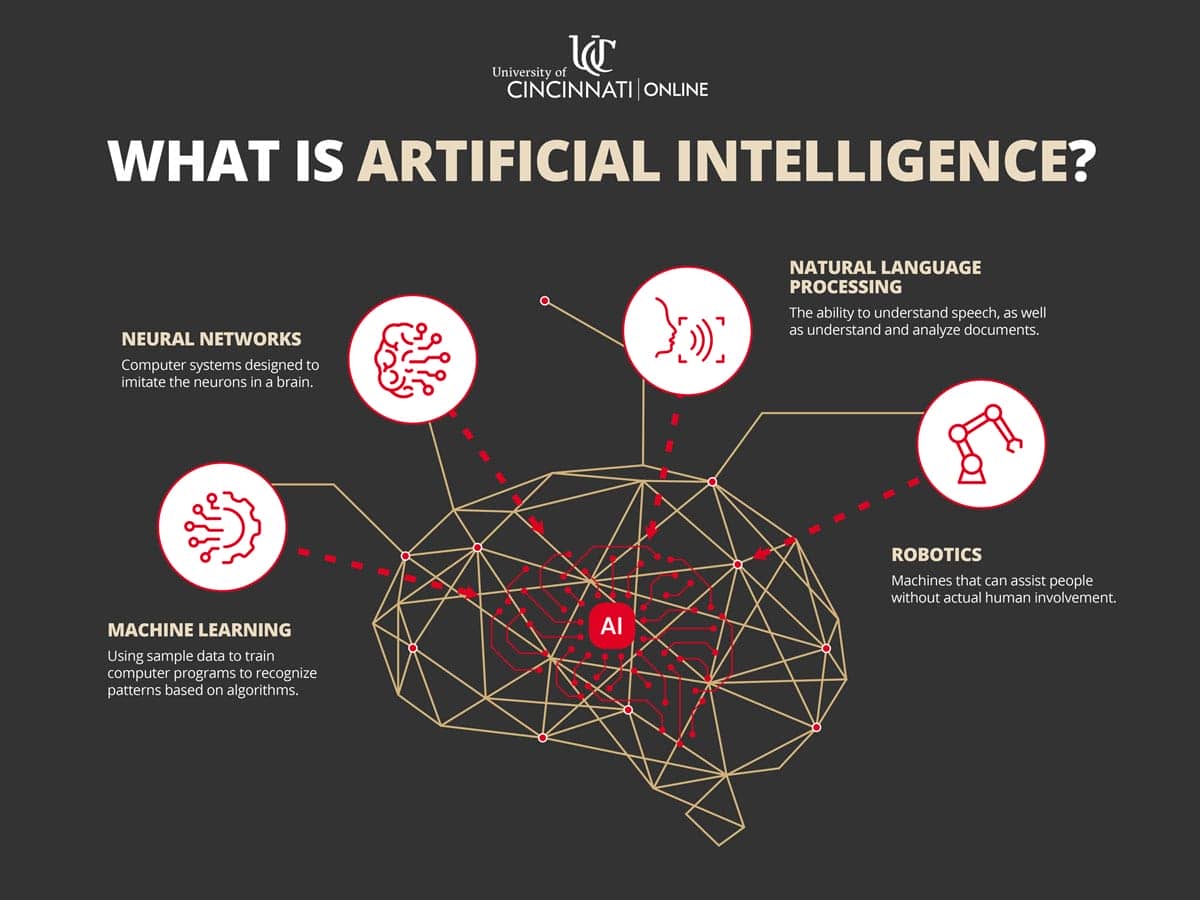CJ Attard Insights
Exploring the latest trends and insights in various industries.
Can AI Make You Smarter or Just More Confused?
Discover if AI is a brain booster or just a confusing overload of information. Uncover the truth in our latest blog post!
Exploring the Cognitive Impact of AI: Enhancing Intelligence or Increasing Confusion?
The advent of artificial intelligence (AI) has undeniably transformed various aspects of our lives, particularly in relation to cognitive functions. On one hand, AI can serve as a powerful enhancer of intelligence, providing tools that augment human capabilities. For instance, AI algorithms can analyze vast amounts of data much faster than a human mind could, allowing us to make informed decisions based on comprehensive insights. This enhancement is evident in fields such as healthcare, where AI-driven diagnostics assist doctors in identifying diseases more accurately than traditional methods.
Conversely, the proliferation of AI technologies may also contribute to an increase in confusion rather than clarity. As individuals rely more on AI for decision-making, there is a risk of cognitive overload, where the abundance of information provided can lead to paralysis by analysis. The challenge lies in balancing the use of AI tools with critical thinking skills; if people lean too heavily on these technologies without question, they may inadvertently diminish their own cognitive abilities. Thus, as we explore the cognitive impact of AI, it becomes essential to consider both its potential benefits and the psychological pitfalls it may introduce.

Can AI Tools Sharpen Your Mind or Cloud Your Judgment?
The rise of AI tools in various aspects of our lives has sparked a debate about their impact on cognitive functions. On one hand, these tools can enhance our productivity by offering personalized recommendations, streamlining tedious tasks, and even aiding in decision-making processes. For instance, scheduling apps powered by AI can optimize our time management by factoring in priorities and deadlines. These capabilities can potentially sharpen our minds by freeing up mental space for more creative and critical thinking. However, this convenience might come with a trade-off, as reliance on technology could inhibit our ability to think independently and solve problems without assistance.
Conversely, there's a growing concern that over-reliance on AI tools can cloud our judgment. As we become more dependent on automated systems for everyday decisions, we risk diminishing our critical thinking and analytical skills. The cognitive load may actually decrease, but so could our capacity for deep reasoning and introspection. Additionally, the algorithms that power these tools are not infallible; they can perpetuate biases and misinformation if not carefully monitored. Thus, while AI can be an incredible ally in mental enhancement, it is essential to maintain a balance to ensure that our judgment remains sharp and that we continue to engage our intellects in ways that foster growth and understanding.
The Double-Edged Sword of AI: Are We Gaining Knowledge or Overloading Our Minds?
As artificial intelligence (AI) continues to embed itself into our daily lives, we find ourselves at a crossroads where the benefits of increased knowledge and efficiency come with significant risks. AI can curate content, analyze vast amounts of data, and even predict future trends, allowing individuals and businesses to make more informed decisions. However, this flood of information can result in cognitive overload, where the sheer volume of data overwhelms our ability to process and retain knowledge effectively. As we become more reliant on AI, we must ask ourselves whether we are truly enhancing our understanding of the world or merely becoming passive consumers of information.
The impact of AI on knowledge acquisition is undeniably a double-edged sword. On one hand, technology can enhance learning experiences through personalized educational tools and adaptive learning systems. On the other hand, the continuous barrage of notifications and the expectation of instant access to information can fragment our attention and undermine deep learning. To navigate this complex landscape, it's essential for individuals to cultivate mindfulness and prioritize focused learning strategies. A balanced approach could help us harness the power of AI while ensuring that our minds remain clear and capable of critical thinking.